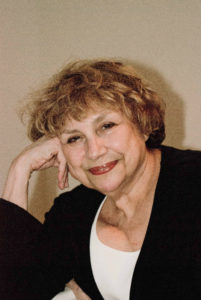Doctor Curmudgeon® Dr. Benjamin Rush
 By Diane Batshaw Eisman, M.D. FAAP Doctor Eisman, is in Family Practice in Aventura, Florida with her partner, Dr. Eugene Eisman, an internist/cardiologist
By Diane Batshaw Eisman, M.D. FAAP Doctor Eisman, is in Family Practice in Aventura, Florida with her partner, Dr. Eugene Eisman, an internist/cardiologist
I, being a duly board-certified curmudgeon, watch the news in pain and sorrow. Galahad the brilliant Siberian Husky who is in charge of everything (and has an MBA, LCSW and Ph.D’s in geophysics and political science) has attempted to ply me with distractions.
Recently, I spoke to him of growing up in Chicago and all the superb medical education around me.
His suggestion to distract me from current events, was to write about Rush Medical College in Chicago one of the first medical schools in Illinois.
This turned out to be a superb idea as it forced my more dismal thoughts away from the news of the day to an earlier time and an earlier physician.
Rush Medical College was not founded by Dr. Benjamin Rush, but by Dr. Daniel Brainard on December 4, 1843 with twenty two students. Dr. Brainard named the school in honor of Dr. Rush, who was the only physician to be a signatory of the Declaration of Independence.
Galahad had learned amidst his massive amount of reading (does my furry relative ever sleep?) that Rush had taught basic medical skills to Meriwether Lewis before he left on his exploration of the Pacific Northwest with William Clark. An interesting and previously unknown factoid for me.
Dr. Benjamin Rush was the Surgeon General of the Continental Army. He was asked to resign this position, after his vocal criticism of General George Washington; and Rush’s questionable mismanagement. At a later date, Rush did speak of his regret of having criticized Washington.
He was a politician who supported the American Revolution. Thomas Paine, the author of Common Sense (a pamphlet that supported American Independence from Great Britain) consulted Rush in the writing of this influential piece.
Dr. Rush wrote one of the first textbooks which classified mental illness and attempted to consider possible causes. Medical Inquiries and Observations upon Disease of the Mind, was published in 1812. In 1965, the American Psychiatric Association officially recognized Benjamin Rush as “the Father of American Psychiatry.”
He was an early advocate of the idea that those with mental disease were ill; they were sick people and mental institutions must treat these individuals with humanity.
In his medical practice, Dr. Rush continued to purge with calomel, do bloodletting, and treat mentally ill patients with mercury. Other contemporary physicians attacked Rush for his overuse of bloodletting. He even had himself bled before his death. Yet, he was meticulous in his care of ill patients and a strong advocate of cleanliness and good hygiene
Benjamin Rush was considered to be an enlightened man who opposed slavery (although he did hold William Grubber, a slave in bondage whom Rush did not free for more than ten years).
He wrote: “Unless we put medical freedom into the Constitution, the time will come when medicine will organize into an undercover dictatorship to restrict the art of healing to one class of men and deny equal privileges to others; the Constitution of the Republic should make a Special privilege for medical freedoms as well as religious freedom.”
He was a pioneer of American enlightenment, advocating education for women, free public schools, and an educator who established two colleges in Pennsylvania.
A social reformer, he helped to found the Philadelphia Society for Alleviating the Miseries of Public Prisons. Now called the Pennsylvania prison Society, it is still in existence.
Thomas Jefferson and John Adams had been friends and cosigners of the Declaration of independence. However, years later, their friendship dissolved as their opinions differed during the administration of George Washington.
The politician- humanitarian side of Rush came into play when he wrote to both men, mediating between them and thus helping to restore their friendship.
Politician, social reformer, educator, abolitionist , Father of Modern psychiatry, supporter of American independence from Great Britain, physician, signatory of the Declaration of Independence, mediator.
My thanks to Galahad for giving me respite and direction to think about a complicated physician and Founding Father. For a few hours peace reigns within the Curmudgeon household.
Dr. Curmudgeon suggests “Bitter Medicine”, Dr. Eugene Eisman’s story of his experiences–from the humorous to the intense—as a young army doctor serving in the Vietnam War.
Bitter Medicine by Eugene H. Eisman, M.D. –on Amazon
Doctor Curmudgeon® is Diane Batshaw Eisman, M.D., a physician-satirist. This column originally appeared on SERMO, the leading global social network for doctors.
SERMO www.sermo.com “talk real world medicine”
[si-contact-form form=’2′]

